Hannahhaifisch - HH

More Posts from Hannahhaifisch and Others






Fluorite and Baryte
Locality: Berbes, Asturias, Spain



Moss Green Halite
Locality: Sieroszowice Mine, Lower Silesia, Poland

Unusual fluid behavior observed in microgravity
Normally when a liquid is heated above its boiling point, it evaporates, turning into a vapor. But when scientists recently performed an experiment on the International Space Station (ISS), they observed that the vapor near a heat pipe condensed into a liquid even when the temperature was 160 K above the substance’s normal boiling point. The results show that microgravity significantly alters the processes of evaporation and condensation, but the scientists do not yet have a complete explanation for the phenomenon.
The research team, consisting of scientists from Rensselaer Polytechnic Institute and the NASA Glenn Research Center, have published a paper on the surprising observations in a recent issue of Physical Review Letters.
This is not the first time that unexpected behavior in heat pipes, which are devices used to cool components of a spacecraft, has been observed in microgravity. In 2015, many of the same researchers made a related, counterintuitive observation during experiments conducted on the ISS.
At that time, the researchers observed that increasing the heat input to a heat pipe did not cause the device to dry out near the heated end as it does on Earth, but instead it caused liquid accumulation there. At the time, the processes responsible for this phenomenon were not completely understood.
Read more.
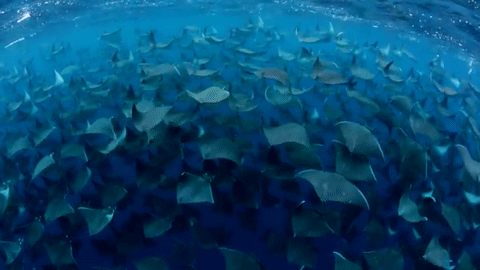
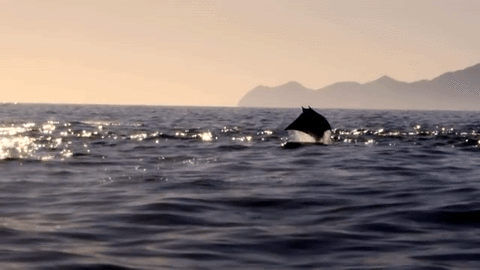
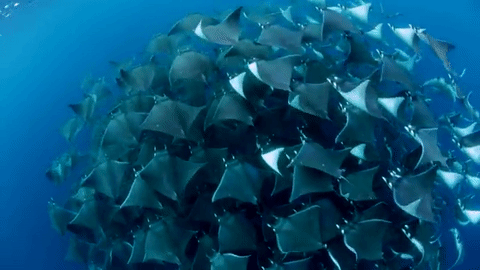

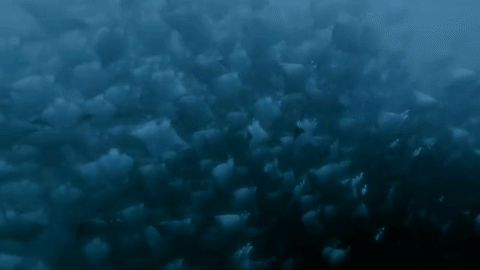
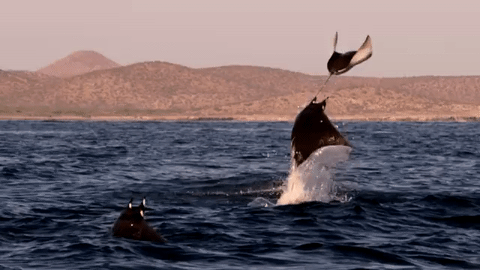
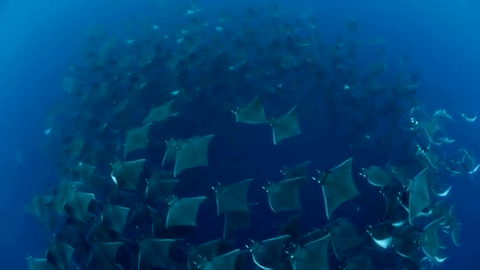
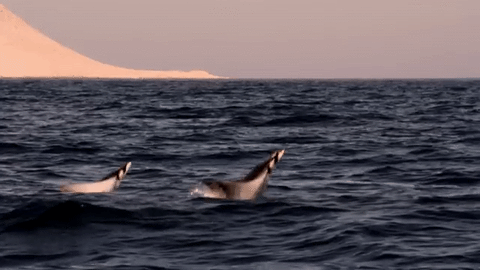
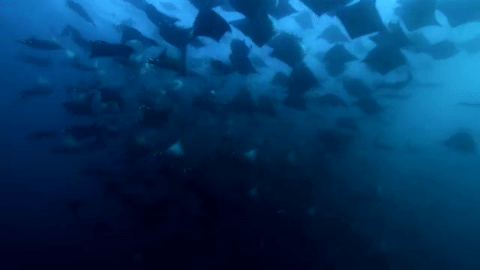
closely related to sharks but with long, flat bodies and wing-like pectoral fins, mobula rays are ideally suited to swooping through the water - here off the gulf of california - yet seem equally at home in the air, so much so that they have earned the name “flying rays”. mobula rays can reach heights of more than two metres, remaining airborne for several seconds.
mobula rays are quite elusive and difficult to study, so biologists are not quite sure why they jump out of the water. theories vary from a means of communication, to a mating ritual (though both males and females jump), or as a way to shed themselves of parasites. they could also be jumping as a way of better corralling their pray, as seen with them swimming in a circular formation.
what is known about mobula rays is that they reach sexual maturity late and their investment in their offspring is more akin to mammals than other fishes, usually producing just a single pup after long pregnancies, all of which makes them extremely vulnerable to commercial fishing, especially as a species that likes to come together in large groups.







TRAPPIST-1 Planets - Flyaround Animation
Credit: NASA/Spitzer
2015 Roundup
Previous years: 2014, 2013, 2012, 2011, 2010. Cool things hopefully coming to this space in 2016. In the meantime, SCIENCE!

Ghost particles.
The McGurk effect is an audiovisual illusion that works even when you know how it works. It shows that understanding speech is visual as well as auditory.

True-color composite of Pluto and its moon Charon.
Jamais vu, the evil twin brother of deja vu.
A few amusing math terms, including surreal numbers and the Cox-Zucker Machine.

The solar eclipse of March 20, 2015. Wow, has it been that long already?
How many words for snow do the Eskimos have? Answer: not as many as you think.

God’s number and the Rubik’s Cube.
Trading in futures in a feudal Japanese rice market.
Quite a few of you have been messaging me using the new messaging system on Tumblr. I can’t respond to all of you if all you say is “hi”–honestly, what did you expect? But if you have any feedback on what you’d like to see here, feel free to do so. See you in 2016, may it be another great year for science!
-
 arcadequeerz liked this · 3 months ago
arcadequeerz liked this · 3 months ago -
 outtafvcks liked this · 1 year ago
outtafvcks liked this · 1 year ago -
 pachucocholosychundos reblogged this · 1 year ago
pachucocholosychundos reblogged this · 1 year ago -
 pachucocholosychundos liked this · 1 year ago
pachucocholosychundos liked this · 1 year ago -
 marz-angelez reblogged this · 1 year ago
marz-angelez reblogged this · 1 year ago -
 mysecond6991 liked this · 1 year ago
mysecond6991 liked this · 1 year ago -
 mezacreates reblogged this · 2 years ago
mezacreates reblogged this · 2 years ago -
 duaa707 liked this · 4 years ago
duaa707 liked this · 4 years ago -
 ewwcringe liked this · 5 years ago
ewwcringe liked this · 5 years ago -
 dreanlamd reblogged this · 5 years ago
dreanlamd reblogged this · 5 years ago -
 foldingfromheights reblogged this · 5 years ago
foldingfromheights reblogged this · 5 years ago -
 ultra-eclecticstudentkid-blog liked this · 5 years ago
ultra-eclecticstudentkid-blog liked this · 5 years ago -
 nuggethunter--2 liked this · 5 years ago
nuggethunter--2 liked this · 5 years ago -
 apollopleasant liked this · 5 years ago
apollopleasant liked this · 5 years ago -
 junejunnie reblogged this · 5 years ago
junejunnie reblogged this · 5 years ago